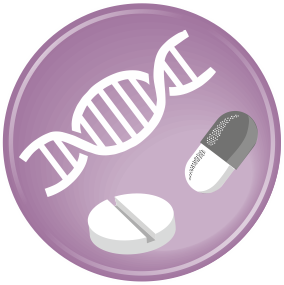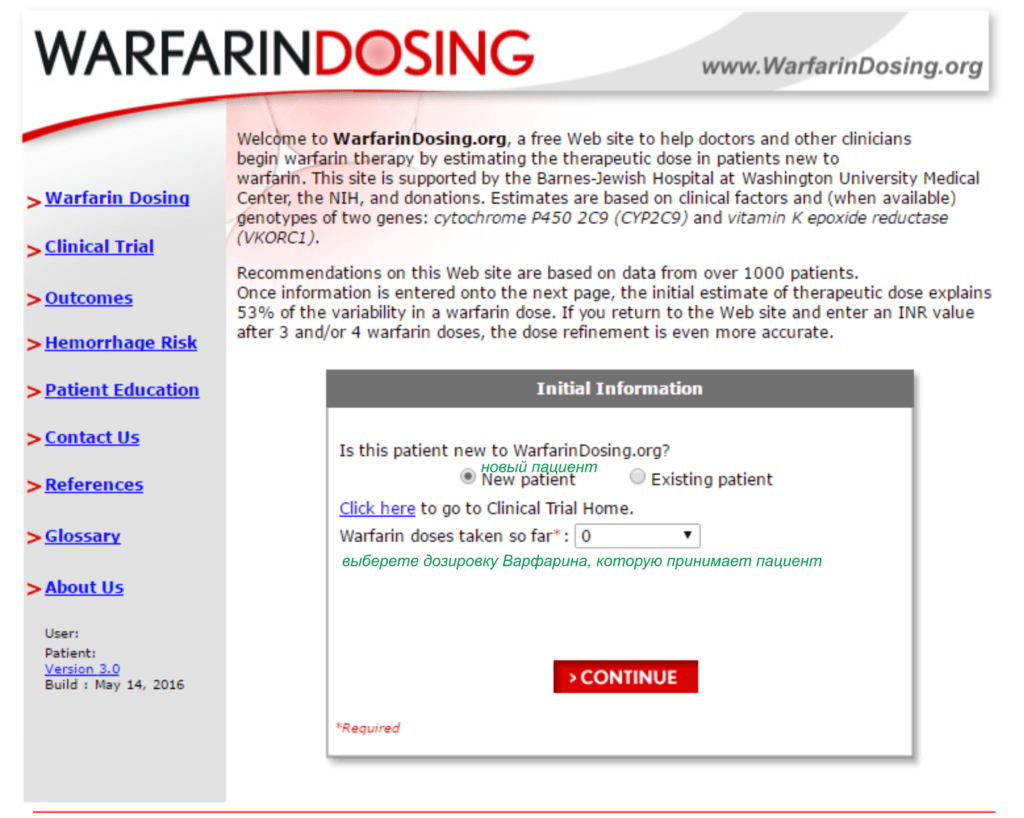| Determination of polymorphisms in the genes CYP2C9, VKORC1 | Price 16'200 tenge |

A pharmacogenetic study to determine an individual safe dose of warfarin (an indirect-acting anticoagulant). Mutations in three genetic markers associated with warfarin hypersensitivity are analyzed.
Biomaterial: Venous blood with EDTA. No special preparation for the study is required.
Lead time: 14 working days
Information about the study
Warfarin is the most common drug related to indirect-acting anticoagulants, prescribed for long-term use in a series of cases associated with increased blood clotting, as well as in the postoperative period in order to prevent the formation of blood clots due to surgical intervention. It is often practiced to prescribe the drug to people who have suffered strokes, myocardial infarction. It is generally accepted to determine the effective therapeutic dose of warfarin by the value of INR (international normalized ratio). It was found that more than a third of patients taking warfarin have INR values outside the accepted limits. With all the advantages of this drug, the selection of an individual dose is of great importance, since its excess can lead to hemorrhages and bleeding, and the decrease - to strokes and other complications. Dose determination by daily INR is often ineffective due to the fact that drug sensitivity can vary greatly depending on the patient's diet, lifestyle, and co-administration of other medications. Along with clinical data and INR determination, genetic factors are very important in selecting an individual warfarin dose. They allow to choose the physiological dose of the drug as quickly as possible and to adjust the patient's lifestyle in a timely manner. The most important genes determining the individual response to warfarin therapy are CYP2C9 and VKORC1.
CYP2C9 is a gene encoding the cytochrome P450 enzyme that regulates the metabolism of warfarin in the body. Genetic markers of CYP2C9 are associated with changes in the functional activity of cytochrome P450 enzyme, which affects the elimination rate of warfarin from the body and thus determines the individual sensitivity to anticoagulant therapy.
VKORC1 is the gene encoding vitamin K. Warfarin acts by blocking the work of this enzyme, thus producing an anticoagulant effect (by inhibiting the activation of clotting factors). The genetic marker VKORC1 C(-1639)T is related to the rate of synthesis and, therefore, to the concentration of the enzyme in the cell; based on the genotype the dose of the drug required to inhibit it and, therefore, to reduce the activity of clotting factors is determined.
Indications for prescription
- In determining the initial dose of warfarin for patients with thrombosis (pulmonary embolism, acute venous thrombosis, postoperative thrombosis, deep vein thrombosis, arterial thromboembolism, etc.)
- In determining the initial dose of warfarin for patients with a high likelihood of thrombotic complications (with atrial fibrillation, after myocardial infarction, prosthetic heart and vascular valves, in the postoperative period, including in orthopedic practice).
Results The assay results identify polymorphisms in three genetic markers, which allows calculation of the optimal drug dose (mg/day, mg/week) taking into account the patient's age, weight, and weight. The calculation algorithm is publicly available at www.warfarindosing.org and allows online calculation of the target weekly warfarin dose.
Important Notes
- The information contained in the report of the genetic study should not be used by the patient on his/her own, the dosage of the drug or its cancellation should only be changed by the doctor's prescription.
- It is important to discuss diet and lifestyle during warfarin therapy and the use of other medications with your doctor.
Additional information:
- Article "Pharmacogenomics - a pathway to personalized medicine." Journal of Laboratory Medicine.
- Book PHARMACOGENETIC TESTING: clinical interpretation of the results. (D. A. Sychev) Recomendations for practicing physicians. Moscow 2011.
- Article "Personalized medicine: Pharmacogenetic testing for effective and safe warfarin dosing" Kazakhstan Medical Journal
Instructions for using WARFARINDOSING.ORG to determine warfarin dosage by genotype.

